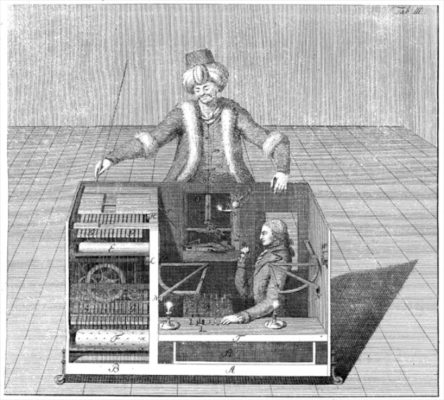Search
To search for an exact match, type the word or phrase you want in quotation marks.
A*DESK has been offering since 2002 contents about criticism and contemporary art. A*DESK has become consolidated thanks to all those who have believed in the project, all those who have followed us, debating, participating and collaborating. Many people have collaborated with A*DESK, and continue to do so. Their efforts, knowledge and belief in the project are what make it grow internationally. At A*DESK we have also generated work for over one hundred professionals in culture, from small collaborations with reviews and classes, to more prolonged and intense collaborations.
At A*DESK we believe in the need for free and universal access to culture and knowledge. We want to carry on being independent, remaining open to more ideas and opinions. If you believe in A*DESK, we need your backing to be able to continue. You can now participate in the project by supporting it. You can choose how much you want to contribute to the project.
You can decide how much you want to bring to the project.

Without a doubt, the large collaborative networks that have arisen under the shelter of Internet have facilitated the realization of exceptional creative projects, the existence of which would have been unthinkable only a few years ago. The facts demonstrate that the masses connected to the web are capable of carrying out valuable cultural productions, if they have access to adequate technological platforms and organisational means. Coordinated action (be it through informal practices and rules) of large online communities has shown to be very efficient at realizing proposals in fields as diverse as science, technology, culture or finance. The work of the multitude having been used successfully in projects as distinct as the cataloguing of animal and vegetable species around the world, the development of software programmes, the writing of encyclopaedias or the prediction of the behaviour of financial values.
Crowdsourcing, that is the practice of resorting to large communities or groups of people to carry out specific tasks, has been revealed as a powerful motor for creation. It’s not for nothing, that thinkers with ideologies as different as Manuel Castells, Howard Rheingold, Don Tapscott and Anthony D. Williams have expressed their admiration for the capacity of the multitude to develop ambitious and complex works.
It is undeniable that crowdsourcing is significant as a notable factor in productivity and as an extraordinary economic motor. However, a critical analysis of its consequences in cognitive labour is still pending. The efforts of the multitude have made it possible to enjoy important developments that have been left at the disposition of the community: amongst the most well known being various free software programmes and Wikipedia. However, crowdsourcing also has its other, darker side: in the end, the creation of large networks of individuals predisposed to realize more or less complex tasks, often accepting a merely symbolic recompense, has led to an increased precariousness of working conditions for numerous workers in the field of knowledge and understanding.
A stark example of the perverse effects of crowdsourcing can be found in Amazon’s Mechanical Turk a virtual platform that offers companies the possibility of using the labour force of the masses to externalize tasks, but which in practice has become a marketplace, where individuals offer their skills frequently at derisory prices. This site, where workers carry out cognitive tasks for on the whole extremely low salaries, supposes the culmination of a productive model born out of the convergence of efficiency of digital technologies and the deregulating philosophy of neoliberalism. Mechanical Turk is a working environment, that due to its virtual nature, enables employers to take advantage of a labour force that is practically devoid of any rights: without social security, holidays or labour protection and without almost any form of defence against the abuses of the employers.
It ends up being surprising that there are analysts who are capable of justifying the conditions regulated by platforms such as Mechanical Turk. In this sense, Erik Brynjolfsson and Andrew McAfee, researchers at the Massachusetts Institute of Technology (MIT), in Race Against The Machine defend the existence of projects such as Amazon’s with the argument that in them one finds the seed of business models that will create wealth in the future. According to the reasoning of these authors, the precariousness imposed on the current workers of Mechanical Turk is the price to pay for prosperity that the efficiency of this market will bring in times to come. Displaying an involuntary irony, Brynjolfsson and McAfee convert their faith in the very future of modern thought into a fundamental ingredient for the neoliberal mythology.
To justify the precariousness of cognitive working conditions in digital communication networks by alleging that it is a necessary condition in order to achieve a more efficient economic order means falling victim to a double superstition: that, on the one hand, affirms that technology is in itself a motor for social progress and on the other, that the markets are naturally regulated systems.
One simple glance at the history of the last two centuries is sufficient to refute the arguments of McAfee and Brynjolfsson: the technical revolution that brought with it industrial capitalism didn’t in itself mean any improvement in people’s lives: workers rights that in Europe can (still) seem so natural, such as the eight hour working day or paid holidays, are a social conquest, the result of decades of confrontation and by no means a direct consequence of the mechanization of society.

Eduardo Pérez Soler thinks that art –like Buda– is dead, though its shadow is still projected on the cave. However, this lamentable fact doesn´t impede him from continuing to reflect, discuss and write about the most diverse forms of creation.
"A desk is a dangerous place from which to watch the world" (John Le Carré)